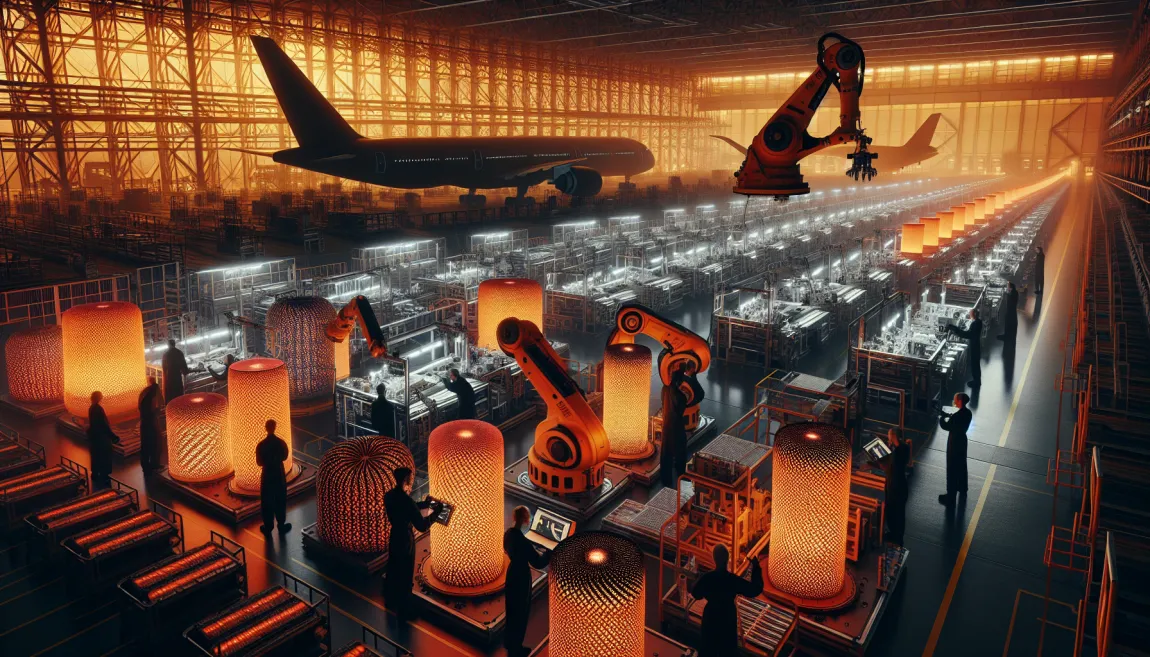The emergence of bio-based composite materials in the construction of aviation containers, as highlighted in the article from PlasticsToday, marks a pivotal shift towards more sustainable practices within the aviation industry. It's not just about environmental benefits, although these are significant, but also about the potential for broader applications of such technologies in various sectors.
Environmental Impact and Sustainability
Firstly, the development of Qingdao HB TempCon's airworthy containers made from bio-based composites supplied by Cathay Biotech could set a new standard for environmental responsibility in aviation logistics. The use of continuous-fiber-reinforced thermoplastic bio-based polyamide composites, as stated, helps reduce the carbon footprint dramatically. Unlike traditional materials, these composites offer high performance while mitigating the environmental degradation associated with metal mining and processing. Moreover, their light weight contributes significantly to reducing the fuel consumption of freight aircraft, further curtailing greenhouse gas emissions.
Technological Innovation and Industry Standards
On the technological front, this innovation champions the integration of durable materials with advanced thermal insulation capabilities. Such advancements are crucial for the safe transport of temperature-sensitive cargoes, including pharmaceutical products, which are increasingly prevalent given global health challenges like the COVID-19 pandemic. The ability of these new materials to maintain strict temperature controls demonstrates how technical innovation can also drive operational improvements in sensitive supply chains.
Economic Viability and Market Implications
While the environmental and technological implications are profound, the economic aspects also warrant consideration. The initial cost of adopting new technologies can be high; however, the long-term savings through reduced operational costs and potential subsidies or benefits from governments looking to encourage greener solutions could offset these. Moreover, the demand for environmentally friendly solutions is rising not only from regulators but also from consumers and businesses aiming to enhance their sustainability profiles. Companies adopting these advanced containers might gain a competitive edge, enhanced by improved public relations and potential market share increases from eco-conscious consumers.
Looking Forward
The effective implementation of these bio-based containers might spur further research and development in the field of sustainable materials. As industries increasingly seek out alternatives to traditional, pollutive materials, the success of Cathay Biotech's composites could lead more companies to venture into bio-based alternatives. Looking forward, maintaining a balance between innovation, cost, and performance will be crucial, as will navigating the regulatory landscapes which vary significantly across different global markets.
Ultimately, by embracing such groundbreaking technologies, the aviation and freight sectors can significantly impact environmental sustainability. The development discussed in the article not only underscores the potential of innovative materials to redefine industry standards but also the broader implications for global supply chains and ecological conservation.
We curate valuable, actionable content for aerospace industry professionals.
View original article:
https://www.plasticstoday.com/automotive-mobility/bio-based-composite-materials-take-off-in-aviation-containers



Leave a Reply